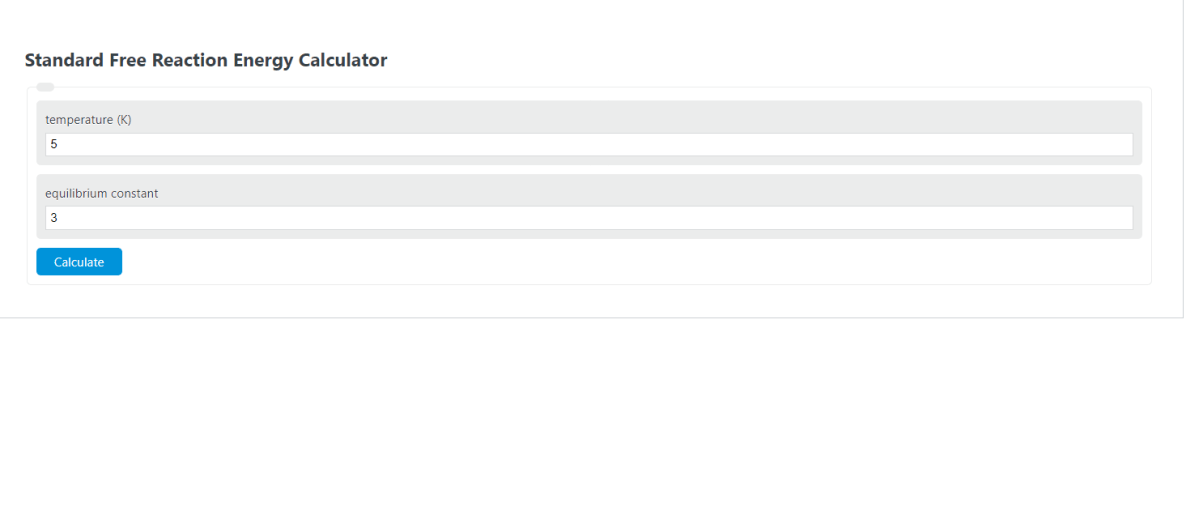Enter the temperature (K) and the equilibrium constant into the calculator to determine the Standard Free Energy.
Standard Free Energy Formula
The following equation is used to calculate the Standard Free Energy.
SFE = -R*T*ln(K)
Variables:
- Where SFE is the Standard Free Energy (Joules)
- T is the temperature (K)
- K is the equilibrium constant
- R is the universal gas constant (8.3145 J/mol-K)
To calculate the standard free energy, multiply the gas constant by the change in temperature and the natural log of the equilibrium constant.
How to Calculate Standard Free Energy?
The following two example problems outline the steps and information needed in order to calculate the Standard Free Energy.
Example Problem #1:
- First, determine the temperature (K). In this example, the temperature (K) is measured to be 95.
- Next, determine the equilibrium constant. For this problem, the equilibrium constant is calculated to be 4.
- Finally, calculate the Standard Free Energy using the formula above:
SFE = -R*T*ln(K)
Inserting the values from above and solving the equation with the imputed values gives:
SFE = -8.314*95*ln(4) = -1094.93 (Joules)
FAQ
What is the significance of the Standard Free Energy in chemical reactions?
The Standard Free Energy (SFE) is a thermodynamic quantity that indicates the spontaneity of a chemical reaction at constant temperature and pressure. A negative SFE value suggests that a reaction can occur spontaneously, whereas a positive value indicates that the reaction is non-spontaneous under standard conditions.
How does temperature affect the Standard Free Energy of a reaction?
Temperature plays a crucial role in determining the Standard Free Energy of a reaction. As the temperature increases, the value of SFE can change, potentially altering the spontaneity of the reaction. This is because the SFE equation includes the temperature variable (T), which directly influences the outcome.
Why is the equilibrium constant important in calculating Standard Free Energy?
The equilibrium constant (K) is a measure of the ratio of the concentrations of products to reactants at equilibrium. It is a critical factor in the SFE equation because it reflects the position of equilibrium and thus the extent to which a reaction will proceed. A larger K value indicates a greater tendency for the reaction to proceed towards the products, influencing the SFE calculation.
